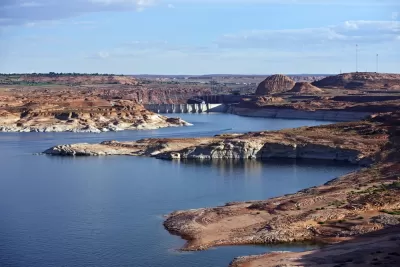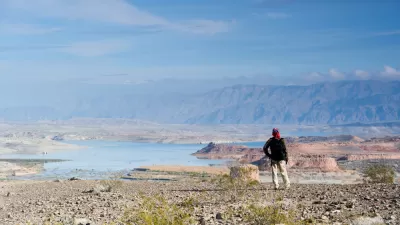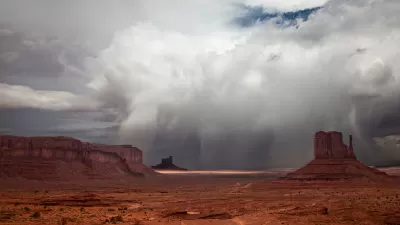The latest Bureau of Reclamation report on water levels in Lake Powell and Lake Mead trigger new drought contingencies in Colorado, New Mexico, Utah, and Wyoming.

Colorado, New Mexico, Utah, and Wyoming will launch a new drought response operations plan as water levels in Lake Powell continue to drop, according to a press release by the Upper Colorado River Commission.
According to terms established by the 2019 Drought Contingency Plan, the U.S. Bureau of Reclamation's May 24-Month Study signals the new for the new drought response plan to keep water levels in Lake Powell from dropping below 3,525 feet. Lake Powell is currently at an elevation of 3,560.6 feet and is approaching its lowest level since the reservoir began filling in the early 1960s.
A new drought response operation plan "would first consider the operational flexibilities at Lake Powell, consistent with existing legal and operational constraints," according to the press release.
If those flexibilities are unable to prevent Lake Powell elevations from falling below 3,525 feet, the parties will consider releases of water to Lake Powell from the upstream reservoirs of Flaming Gorge, Blue Mesa, and Navajo (“Initial Units” under the Colorado River Storage Project Act). Releases could be made from some or all of the Initial Units and would likely occur in varying quantities and times but consistent with current legal and operational requirements at the facilities. A plan would also include the recovery of water at the participating Initial Units to restore operating elevations at those facilities to their pre-plan levels.
The "megadrought" gripping the U.S. Southwest and the Colorado River watershed is only expected to get worse. The Drought Contingency Plan was first triggered for Upper Colorado states in January, when that month's 24-Month Study triggered enhanced monitoring and coordination—and a warning for states to prepare for drought. Similar conditions for Lower Colorado state were triggered the same year as the DCP was signed into law. Arizona is already preparing to manage with 20 percent less water from the Colorado Rover.
FULL STORY: Upper Division States and Reclamation to Begin Development of Drought Response Operations Plan

Maui's Vacation Rental Debate Turns Ugly
Verbal attacks, misinformation campaigns and fistfights plague a high-stakes debate to convert thousands of vacation rentals into long-term housing.

Planetizen Federal Action Tracker
A weekly monitor of how Trump’s orders and actions are impacting planners and planning in America.

In Urban Planning, AI Prompting Could be the New Design Thinking
Creativity has long been key to great urban design. What if we see AI as our new creative partner?

King County Supportive Housing Program Offers Hope for Unhoused Residents
The county is taking a ‘Housing First’ approach that prioritizes getting people into housing, then offering wraparound supportive services.

Researchers Use AI to Get Clearer Picture of US Housing
Analysts are using artificial intelligence to supercharge their research by allowing them to comb through data faster. Though these AI tools can be error prone, they save time and housing researchers are optimistic about the future.

Making Shared Micromobility More Inclusive
Cities and shared mobility system operators can do more to include people with disabilities in planning and operations, per a new report.
Urban Design for Planners 1: Software Tools
This six-course series explores essential urban design concepts using open source software and equips planners with the tools they need to participate fully in the urban design process.
Planning for Universal Design
Learn the tools for implementing Universal Design in planning regulations.
planning NEXT
Appalachian Highlands Housing Partners
Mpact (founded as Rail~Volution)
City of Camden Redevelopment Agency
City of Astoria
City of Portland
City of Laramie





























